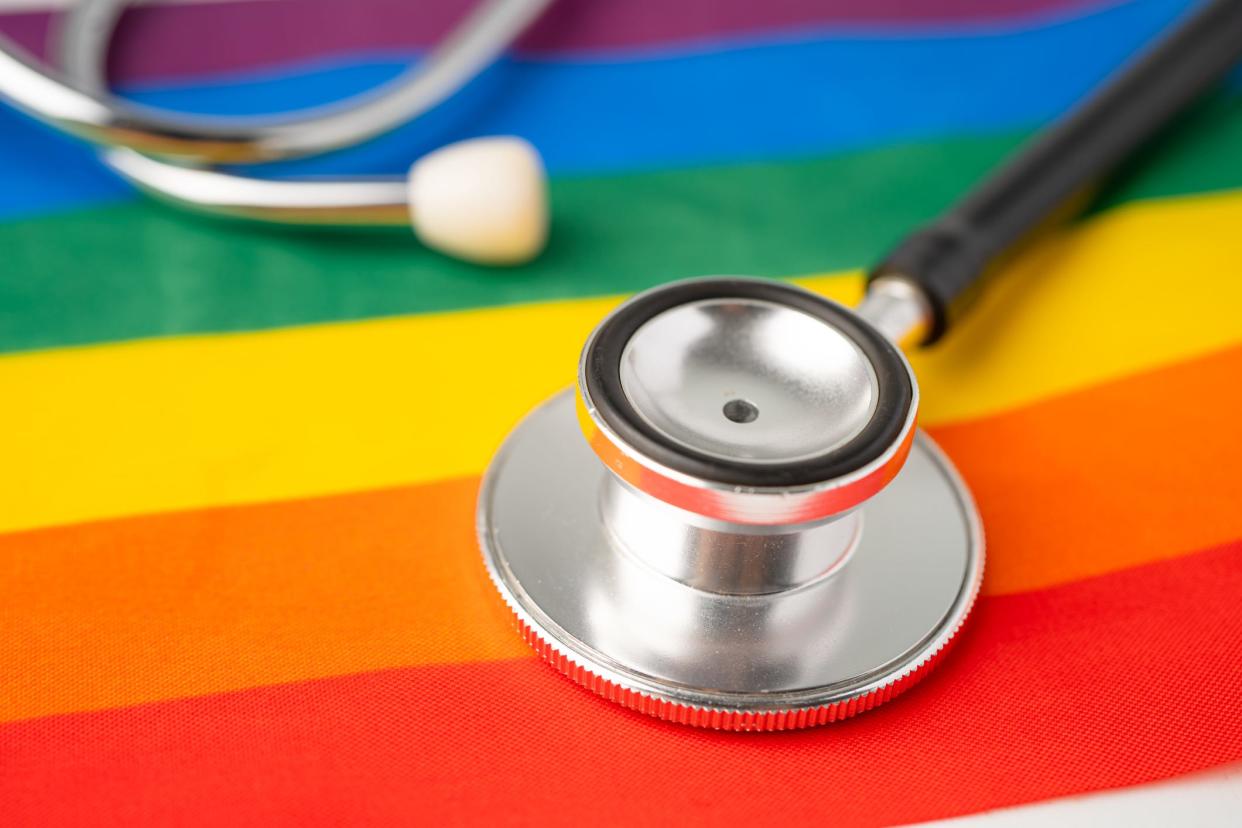Even in 2022, LGBTQ+ community faces discrimination, hostility in health care

As we reflect back on Pride Month this year, the 52nd year of annual Pride celebrations, we must also recognize where work will still need to be done every day of every year – especially during a time of increasingly divisive challenges that face the LGBTQ+ community.
Continued bias and lack of protection for the millions of individuals in the United States who identify as LGBTQ+ create barriers for those seeking access to health care. These may range from stigma about talking with health-care providers about sex, discussing HIV-related treatments, discrimination when seeking fertility treatment or general refusal to provide service.
There remains a severe shortage of safe spaces for the LGBTQ+ community to receive culturally competent care, with escalating obstacles to offering consistent health care to our community.
Trans community faces even greater obstacles
For the trans community, whose members are often the most vulnerable, targeted and systematically underrepresented population in the LGBTQ+ community, there is an even greater lack of support.
According to a report released in 2021 by the Center for American Progress, nearly half of trans people have faced discrimination from a health-care provider or an insurance provider.
Difficulty changing names and gender markers, providers withholding medical care based on gender identity assumptions, or insurance companies refusing to cover routine care, critical lab tests or medical procedures are all too common occurrences.
LGBTQ+ RIGHTS: Bipartisan bill would protect gay and transgender Arizonans
The roots of these barriers run deep. They stem from lack of understanding of the unique needs of the trans community as well as explicit bias and discrimination.
Additionally, research from the U.S. Department of Health and Human Services suggests that LGBTQ+ individuals face health disparities connected to “societal stigma, discrimination, and denial of their civil and human rights.”
This, in turn, translates into higher rates of substance abuse, suicide and a myriad of other health concerns that have lasting effects on not just the individual, but also on families and loved ones.
How do we address these inequities?
How do we address the systemic inequities faced by members of the LGBTQ+ community?
The answer is awareness, protection and access. Safe spaces for members of the LGBTQ+ community to receive competent health care, without fear of discrimination or judgement, foster more open dialogue about health and wellness, direct delivery of services and, in turn, higher quality of life.
More specifically, the department of Health and Human Services has identified a number of factors that need to be addressed to improve LGBTQ+ health outcomes, including:
gathering representative data on LGBTQ Americans,
preventing violence against this community,
building resiliency, supporting elder health and wellbeing, and
establishing a standard LGBTQ+ wellness model, among others.
Progress is happening. Comprehensive reviews like the recently published GLMA Handbook, an extensive resource by The Gay & Lesbian Medical Association, can equip health-care professionals with the needed knowledge to care for the physical, mental and emotional health of LGBTQ+ individuals.
Here at the Southwest Center, we aim to deliver care to the LGBTQ+ community in a safe and welcoming environment, and to provide barrier-free access to health and wellness services.
We've doubled the size of our clinic
The Southwest Center, founded more than 30 years ago as Phoenix Body Positive, was established to lead in the fight against HIV and AIDS, which disproportionately impacted gay men. For three decades, we have worked to provide solutions to the health care challenges faced by historically marginalized groups.
And we are not alone. A broad coalition of partners, including Aunt Rita’s, one-n-ten, Equality Arizona, One Community and Phoenix Pride, is focused on enhancing health and wellness access and addressing stigma and discrimination.
Today, our clinic serves more than 30,000 Arizonans of all ages, races, ethnicities and genders each year, with life-changing support. What’s more, thanks to the support of partners like Arizona Family Health Partnership, we recently doubled the size of our clinic, allowing us to expand the number of patients we can serve.
We deeply believe in a just and equitable future, and we are determined to inspire greater investment in health care resources for LGBTQ+ residents to help deliver on this vision.
We are proud to stand alongside our partners to serve the most vulnerable members of our community. With leadership, awareness and collaboration, we know a healthier and more equitable future is possible.
Pride signifies purpose, change and action. Every person has a right to be seen, heard, belong and be treated with dignity, especially when it comes to their health – and not just during the month of June.
Jessyca Leach is executive director of Southwest Center and Kirk Baxter is founder of Phoenix Body Positive. Reach them at jleach@swcenter.org and kirk.baxter818@gmail.com; on Twitter: @SWCforHIVAIDS.
This article originally appeared on Arizona Republic: LGBTQ+ community faces discrimination, hostility in health care

